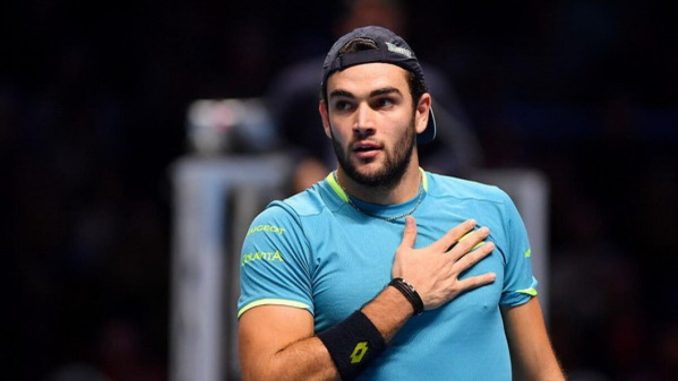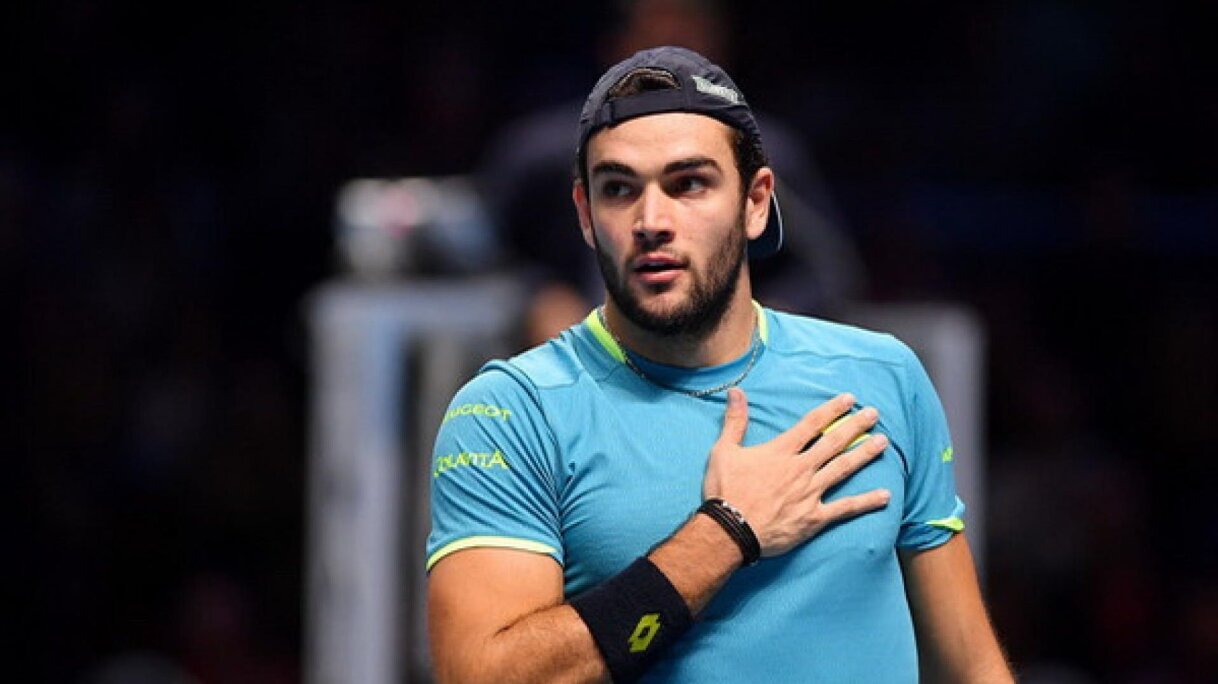
Top Analyst Explains the Reasons for Matteo Berrettini’s Loss

Matteo Berrettini, the Italian tennis star, has been a formidable presence on the ATP Tour, known for his powerful serve and aggressive baseline game.
However, in a recent high-stakes match, Berrettini suffered a significant loss, sparking analysis and discussions about the factors contributing to his defeat.
A top analyst provides an in-depth examination of the reasons behind Berrettini’s loss, shedding light on technical, tactical, physical, and psychological aspects of his game.
#### Technical Shortcomings
One of the primary reasons highlighted by the analyst is Berrettini’s technical shortcomings during the match. Despite his strong serve, Berrettini’s return game has been identified as an area of vulnerability.
His inability to consistently handle his opponent’s serve put him at a disadvantage, particularly on crucial points. The analyst notes that Berrettini struggled with timing and positioning on returns, often leaving him out of position for the subsequent shots.
Additionally, Berrettini’s backhand, traditionally considered weaker compared to his powerful forehand, was frequently targeted by his opponent.
The analyst points out that Berrettini’s one-handed backhand lacked depth and consistency, allowing his opponent to dictate rallies and exploit this weakness. This imbalance between his forehand and backhand hindered Berrettini’s ability to maintain control during baseline exchanges.
#### Tactical Missteps
Tactically, the analyst observes that Berrettini’s game plan lacked the necessary adaptability. He relied heavily on his serve and forehand combination, which, while effective, became predictable.
His opponent capitalized on this predictability by preempting Berrettini’s shots and countering effectively. The analyst emphasizes the importance of incorporating variety in shot selection and employing different strategies to keep the opponent guessing.
Moreover, Berrettini’s net play, another potential asset, was underutilized. Despite having the physical attributes and skills to dominate at the net, Berrettini hesitated to approach and finish points.
The analyst suggests that a more aggressive approach, incorporating serve-and-volley tactics and frequent net approaches, could have disrupted his opponent’s rhythm and put additional pressure on their baseline game.
#### Physical Conditioning
Physical conditioning also played a crucial role in Berrettini’s loss. The analyst highlights that Berrettini appeared fatigued during the latter stages of the match, which affected his movement and shot execution.
Extended rallies and long sets tested his endurance, and signs of physical strain became evident. This fatigue likely impacted his ability to maintain high intensity and focus throughout the match.
Injuries have been a recurring issue for Berrettini, affecting his performance and consistency. The analyst notes that managing physical fitness and preventing injuries are critical for sustaining peak performance, especially in a demanding sport like tennis.
Ensuring adequate recovery and conditioning could mitigate these challenges and enhance Berrettini’s competitiveness in future matches.
#### Psychological Factors
Psychological factors are another significant element in Berrettini’s loss. The analyst points out that mental toughness and resilience are essential in high-pressure situations, and Berrettini showed signs of psychological vulnerability.
During key moments, such as break points or tiebreaks, Berrettini struggled to maintain composure, leading to unforced errors and missed opportunities.
The analyst emphasizes the importance of mental conditioning and the ability to stay focused and confident under pressure. Developing a stronger mental game can help Berrettini manage stress, stay composed during critical points, and bounce back from setbacks more effectively.
#### Opponent’s Strengths
The analyst also acknowledges the strengths of Berrettini’s opponent, which contributed to his loss. The opponent’s ability to read Berrettini’s serve, return effectively, and exploit his weaknesses was crucial.
Additionally, the opponent’s tactical acumen and execution of a well-devised game plan put Berrettini on the defensive, further highlighting the areas where he needs improvement.
#### Conclusion
Matteo Berrettini’s loss can be attributed to a combination of technical, tactical, physical, and psychological factors. Addressing these areas holistically is essential for his growth and future success. The analyst’s insights underscore the importance of continuous improvement and adaptation in a highly competitive sport like tennis.
For Berrettini, focusing on enhancing his return game, diversifying his tactics, improving physical conditioning, and strengthening his mental resilience will be key steps in overcoming challenges and achieving his full potential on the ATP Tour.
Leave a Reply